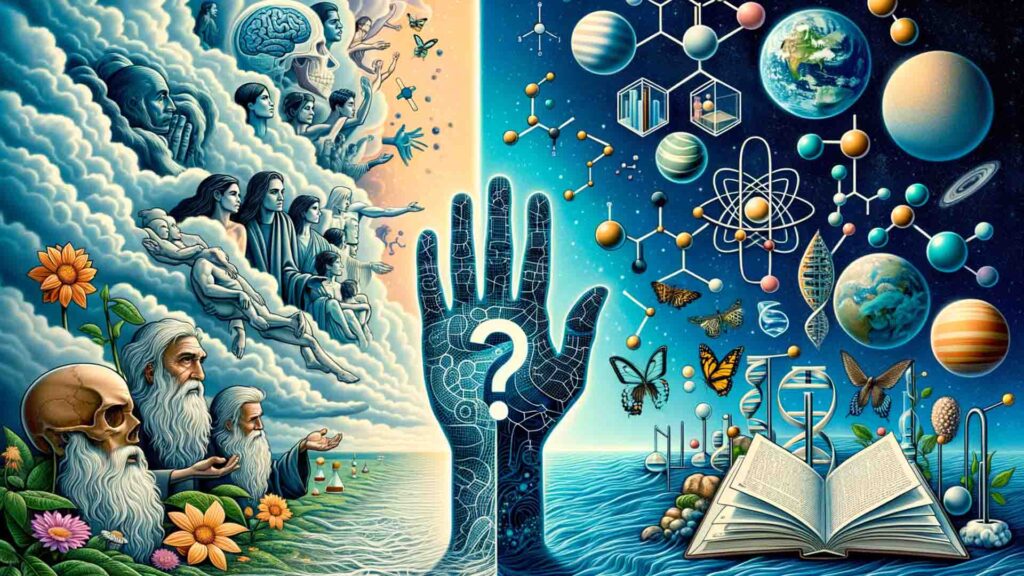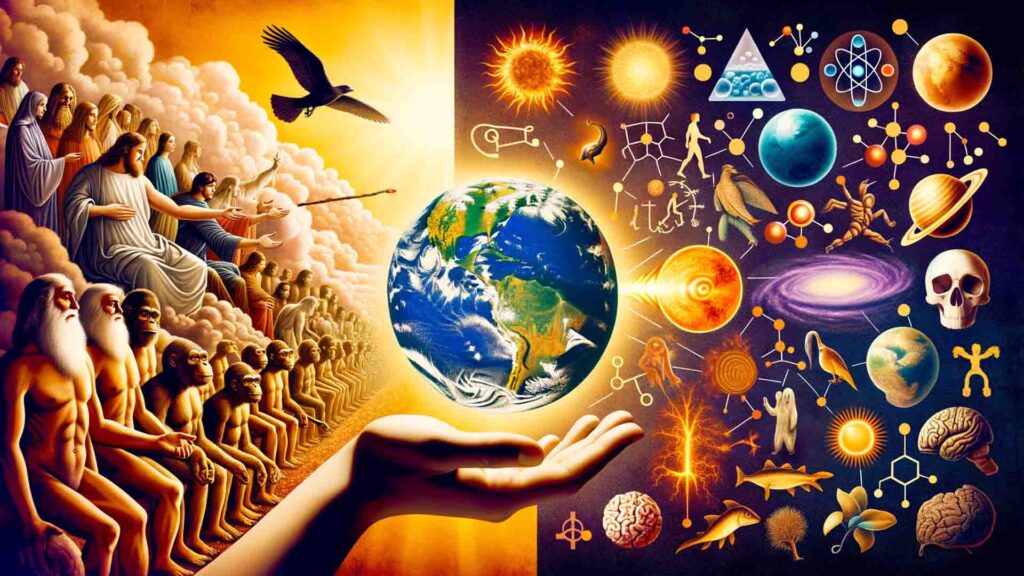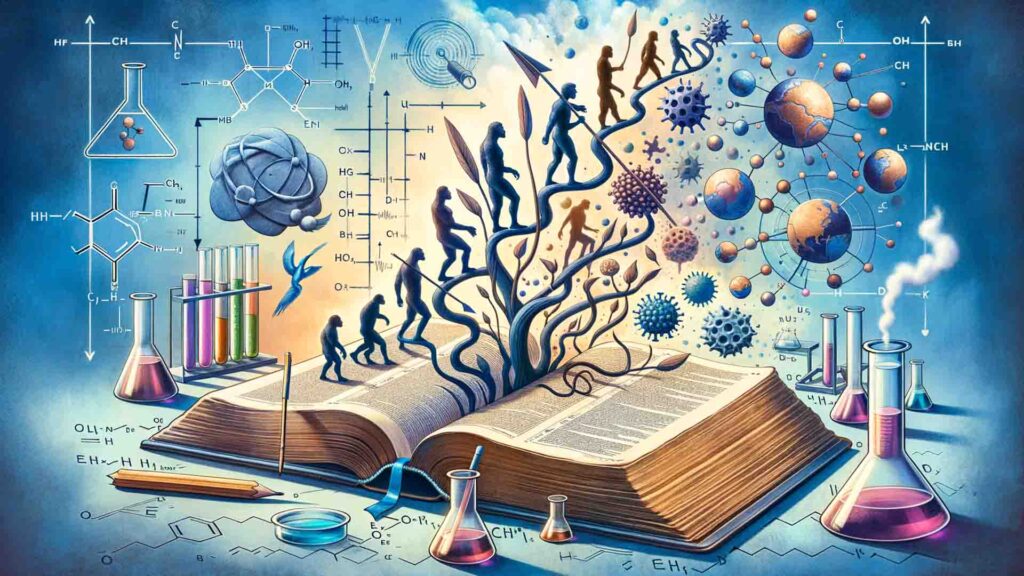In recent centuries, there’s been a debate: some say the Bible directly contradicts modern science and dismiss it as a collection of ancient myths. Others argue that the Bible is in complete harmony with scientific findings, suggesting that it presents, in its unique way, the story of the universe’s creation. So, where does the truth lie, and how aligns the Bible with science, especially from a Catholic perspective?

Science and Miracles
We live in an era where science reigns supreme. Headlines boasting “Scientists have proven that…” or “Research has shown…” are widespread, yet upon closer inspection, many of these claims are more about advertisement than genuine science.
It’s essential to remember that not everything labeled as “science” truly is. Science, by its nature, is debatable and subject to change. For instance, Newton’s mechanics were eventually reshaped by the theory of relativity and quantum physics, fundamentally altering our understanding of the universe. Scientists continually debate and challenge previous understandings, leaving open the possibility for future theories to reshape our current perceptions dramatically.
Given this, can we expect the Bible to completely align with the 21st-century scientific worldview? If so, why not also align with the scientific understandings of the 1st or 11th century, given how differing these perspectives are?
The Bible wasn’t written as a science textbook. If it were, it would have become obsolete within a generation. Instead, the Bible addresses much broader topics.
**Miracles, for instance, are often cited as contradictions to science because they defy natural laws. But that’s the very definition of a miracle. As Apostle Paul stated, “If Christ has not been raised, our preaching is useless and so is your faith” (1 Corinthians 15:14). Fundamental scientific principles, theories, and even facts have been revised and questioned over the years, contributing to science’s development. The resurrection goes beyond the realm of science, signaling a divine intervention that defies normality.
The Bible’s Purpose
The Bible wasn’t written as a textbook on physics or biology. If it were, it would become outdated within a generation. Instead, the Bible talks about vastly different topics, most of which aren’t under the purview of science. For instance, the concept of miracles – events that defy the laws of nature – is central to many biblical stories. These narratives aren’t there to challenge scientific laws but to illustrate the might and mercy of God, actions that transcend human understanding.
The Bible and Catholic Faith
From a Catholic perspective, faith and reason, including scientific understanding, are seen as complementary rather than contradictory. The Church teaches that faith enriches the insights we gain from scientific inquiry. The Bible’s telling of creation, the miracles of Jesus, and other biblical events invite believers to see God’s handiety in the world, beyond the explanations provided by science.
For example, the story of the creation in Genesis isn’t meant to provide a scientific account of the universe’s origins. Instead, it’s a theological reflection on God’s relationship with the world and humanity. It’s about the who and the why, not the how and the when of creation.
The Role of Interpretation
Interpretation plays a significant role in the Bible’s relation to science. The Bible narrates events like the global flood, which is hard to reconcile with current geological understanding. However, describing such events might not be to provide a scientific explanation but to convey moral or spiritual truths.
Language and Worldviews
The language of the Bible, filled with metaphorical and poetic expressions, isn’t meant to be scientific. Biblical authors portrayed the Earth as flat because that was their understanding. Today, we know that’s not literally true, but we can appreciate the Bible’s language as metaphorical, pertaining to God and His intentions rather than a detailed scientific account of the universe’s formation.
The Evolution Debate

The debate around evolution is another area often highlighted as a conflict between the Bible and science. Yet, the Bible simply affirms that God created the world and life within it, without detailing the process. Could evolution have been God’s method? Scientific theories evolve and are refined over time; the evolutionary theory itself has undergone significant changes and still faces unanswered questions.

The relationship between the Bible and science is more harmonious than adversarial. The Bible addresses the meaning and purpose of life, our relationship with God, and moral truths, areas outside the scope of scientific inquiry. Catholic teaching encourages a harmonious view where faith and science each have their place, complementing rather than contradicting each other. Thus, rather than seeing the Bible as outdated or incompatible with modern science, Catholics view it as a timeless text that speaks to the eternal truths of God's love, justice, and mercy. It's a sacred scripture that guides believers in their faith journey, helping them to navigate the complexities of life with spiritual wisdom that transcends scientific knowledge.

